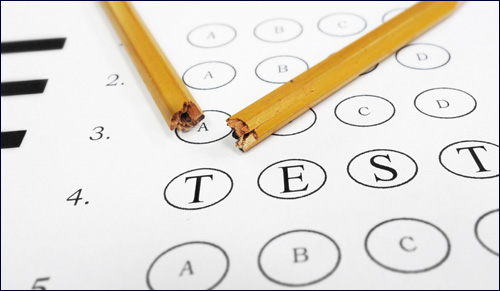 Vampire Weekend's Surprising Jewish Stories
Vampire Weekend's Surprising Jewish Stories


4 min read
3 min read
7 min read
5 min read
Do you know more about Israel than the average Birthright applicant?
With Israel constantly in the news – and debates about the Jewish state dominating many headlines and campus discussions – researchers at the Cohen Center for Modern Jewish Studies at Brandeis University decided to measure how much today’s Jewishly involved college students – who often find themselves on the front lines defending the Jewish state on American campuses – know about Israel.
In a series of interviews and questionnaires administered over two years from 2013 to 2015, hundreds of Jewish students from 20 major American Universities who’d applied to visit Israel on a Birthright trip were asked to answer a range of questions about Israel’s history, politics, culture and society – with shocking results.
These students already had strong Jewish backgrounds. In addition to planning to tour Israel with Birthright, 44% already had visited Israel previously. The vast majority – 83% – had some formal Jewish education growing up, either in the form of part-time Religions School or full-time day school. A quarter had taken at least one college class about Israel, and over a quarter of the students listened to news stories about Israel at least once a month.
Yet most flunked the test. The average score was 46%: an “F” in most grading scales. The median score was even worse: 44%. Only 8% of respondents managed to score above a 75: a “C+” or higher.
While some greeted the results with dismay, the researchers who devised and administered these tests noted that it’s easy to improve scores: “There seems a clear and obvious link between education, time spent in Israel, and reading the news with increased scores on the literacy questions. ….those who have greater exposure to Israel answer more questions correctly.”
Over a quarter of the Birthright applicants characterize hostility towards Israel on campus as either a “very big” or a “fairly big” problem; 15% report that hostility towards the Jewish state has spilled over on their campuses into hostility towards Jews in general. In this atmosphere, it’s vitally important to be able to talk about the Jewish state confidently. Scoring high on Israel literacy helped students stand up to anti-Jewish bigotry, the researchers found: “students who scored higher on the questions also felt more confident in their ability to explain the current situation in Israel”.
Here are 15 sample questions from the Israel literacy test. (Answers are at the end.) See how you score – then challenge yourself to learn even more about Israel – and encourage others to do the same!
1. The word “Zion” was FIRST used when?
2. Who gets to vote in Israel?
3. What was one of the immediate causes of the Second Lebanon War?
4. Zionism is a movement that DOES NOT include the promotion of:
5. The State of Israel was declared on:
6. Which of the following statements about the Israeli economy is TRUE?
7. The population of Israel is approximately:
8. The Prime Minister of Israel is:
9. Hamas and Hezbollah are:
10. The current Prime Minister of Israel is:
11. The Holocaust is significant to the State of Israel because:
12. What is the Green Line?
13. The largest wave of immigration to Israel in the last two decades of the 20th Century came from:
14. Which statement is NOT true?
15. Who are Amos Oz, David Grossman, A.B. Yehoshua, and Etgar Keret?
(Answers: 1 – C. 2 – A. 3 – D. 4 – D. 5 – C. 6 – C. 7 – D. 8 – B. 9 – B. 10 – A. 11 – B. 12 – A. 13 – D. 14 – B. 15 – B.)
